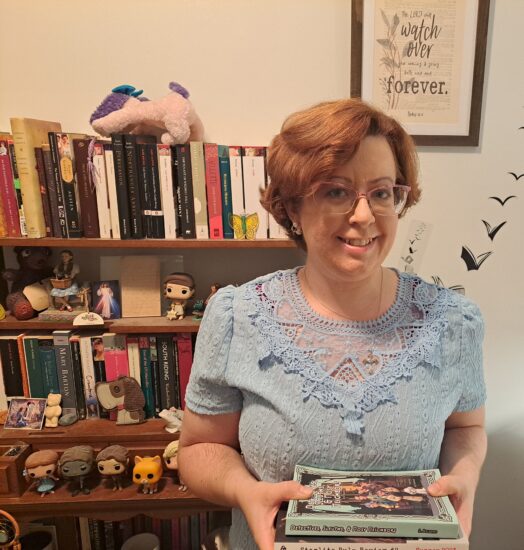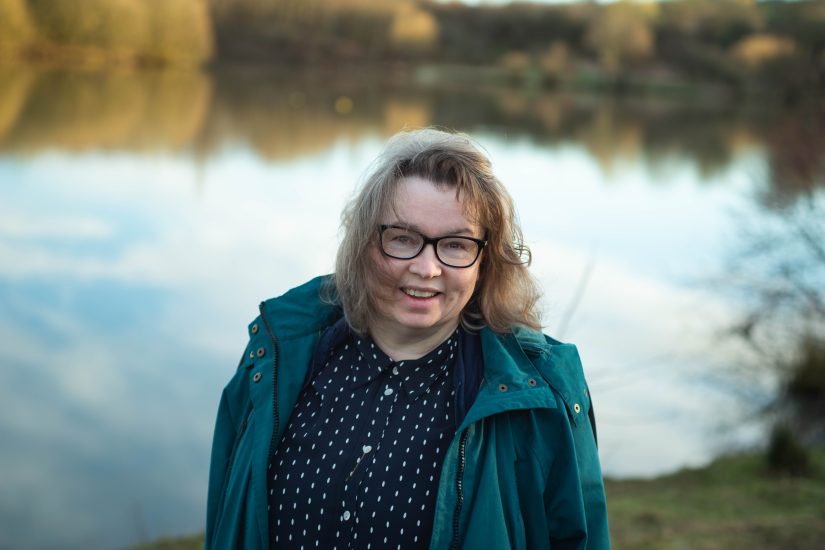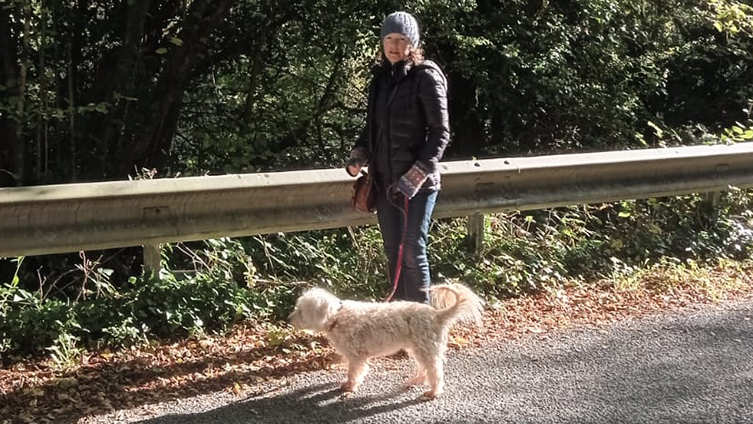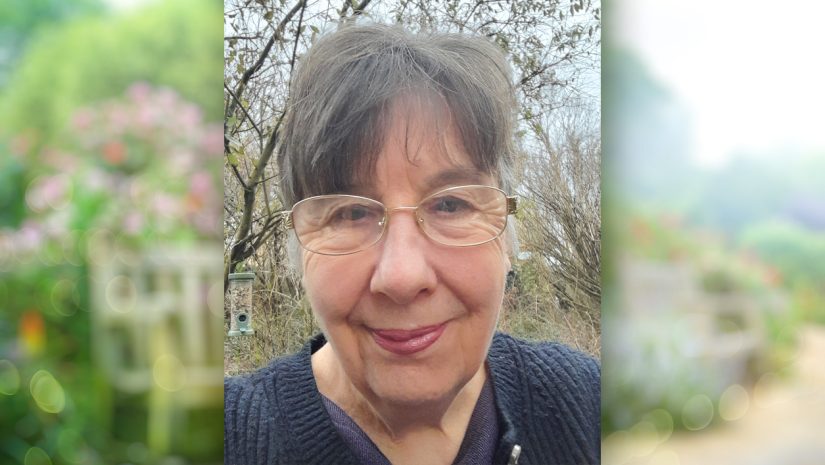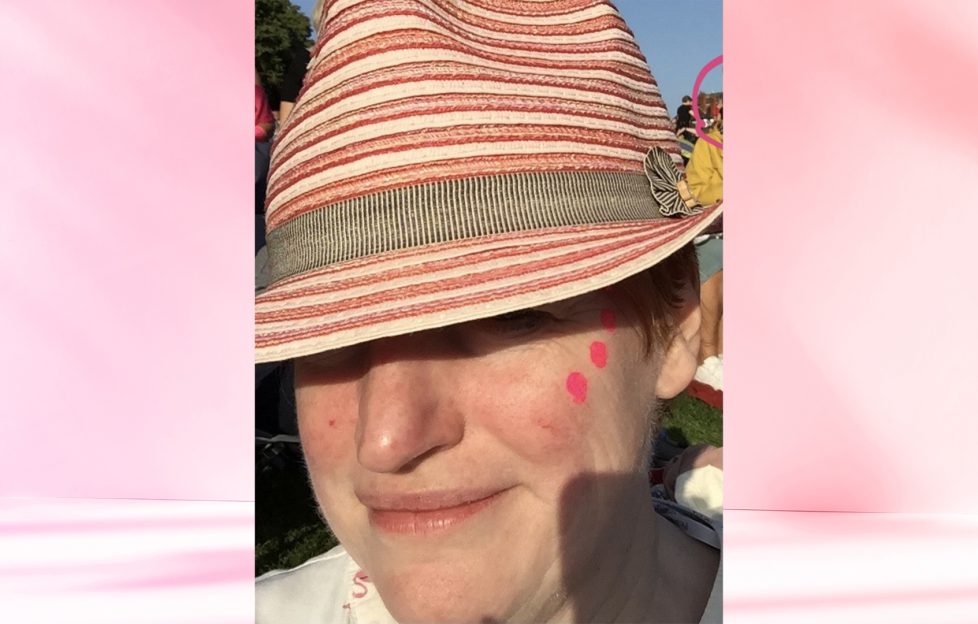
Our Writer Of The Week is Hazel Meredith-Lloyd, whose story, “Don’t Lose Your Head!”, is in Special 264, on sale now.
Set in the theatre world, there is good humour in your story. Do you find comedy easy to write?
Firstly, thank you. I had fun writing it and imagining the situation, and I’m glad that the humour has come across well. Thinking about it, I find it hard to write anything which doesn’t have at least some comedy in it. Even if I’m writing a story or a poem that deals with some of the more challenging aspects of life, I find that I have a compulsion to put comedy into it. I think that mixing light and shade makes for a good story.
Many elements of my own life and character appear in my novels – all sprinkled with humour. One of my characters has cystic fibrosis like myself. It is important to me to portray her as a strong, funny, flawed, multi-layered and independent person, achieving her goals and thriving with a disability.
Are you a fan of theatre and, if so, does it help you as a writer?
I absolutely love going to the theatre and am even happy watching outdoor productions when it’s pouring with rain! It probably won’t surprise anyone reading my story to hear that I used to be in amateur dramatics groups and loved everything about it, from being the prompt to having a main role.
I get very inspired by watching plays. Live theatre is amazing and seeing the actors bring a book or a play to life really helps me to come up with interesting characters and situations for my own writing.
I also go to lots of live stand-up comedy – one of my happiest places to be is a comedy festival. The way that stand-up comedians write and perform is amazing. In my mind, there’s a lot of crossover with the writing of stand-up comedy and that of poetry and stories.
I often tweak the sentences in my stories and poems to make sure the lines are the right length and that I’ve not used the same words too often. I play around with different words and phrases until it sounds right and creates the effect I want it to, whether that’s humour or evoking empathy.
What is it about poetry that you enjoy?
Whether I’m excited, happy, sad, angry or emotionally overwhelmed, I find that putting those feelings into a poem really helps me to deal with them. Sometimes there are so many thoughts buzzing round my head about an event or a situation that I don’t know where to begin.
When this happens, I often write a poem about it with a structure and form, such as a triolet, a sonnet or a rondeau redoublé. These have quite strict rules about rhymes, rhythm and number of syllables and lines. I find the discipline of writing to these poetic forms really helps me get my feelings in order and, expressing them in this contained way, enables me to deal with them.
Who are your inspirations – literary or otherwise?
Oh, there are so many and I’m worried I’ll forget some! Roger McGough is one of my poetry heroes and, during the pandemic, I sent him a poem I’d written about the day I spoke to him after seeing his show. To my delight, he emailed me back and said such encouraging words. He also sent me a copy of a poem he’d just written, which I was thrilled to later see him perform.
Many years back, I sent a handwritten letter to Ben Elton, telling him how much his novel “Gridlock” meant to me because it features two main characters with disabilities. It was ahead of its time, showing these characters to be thriving. It also used humour when dealing with the issues of health problems and how society treats people who are different from the norm. Ben wrote me a lovely and encouraging letter back, as well.
So, I’ve been really lucky to receive such encouragement from writers. I have completed many courses and been fortunate to meet so many writers and comedians who are all so generous with their time, support and advice.
Notebook and pencil or laptop? Kitchen table or study? Blank wall or inspiring view?
A mixture of everything! I’ve designed a series of notebooks for all sorts of creative people. I would love to earn enough money to have a study, but I’m also happy as I am, with a folding table, which I get out to put me in writing mode.
I was part way through a degree in English when the pandemic happened. One of my happiest places in the university was the library and, once it was safe to do so, it was a joy to return to it as alumni. I’m going back to university this year to study for a Masters by Research in Storytelling. Sadly, my beautiful campus and library has closed down, but I’m going to commute to the main campus. Hopefully, I’ll get chance to write on the train.
What’s your one top tip for aspiring writers?
Write what you enjoy reading. If you are enjoying writing the story and characters, then that joy will shine through and like-minded readers will love it, too. I say “like-minded”, because everyone has different tastes and you will never please all of the people all of the time. But that’s OK – there are enough different books and stories out there for all of us, and we don’t all have to love the same things for them to be valuable.
As the writer Toni Morrison said, “If you find a book you really want to read but it hasn’t been written yet, then you must write it.”

